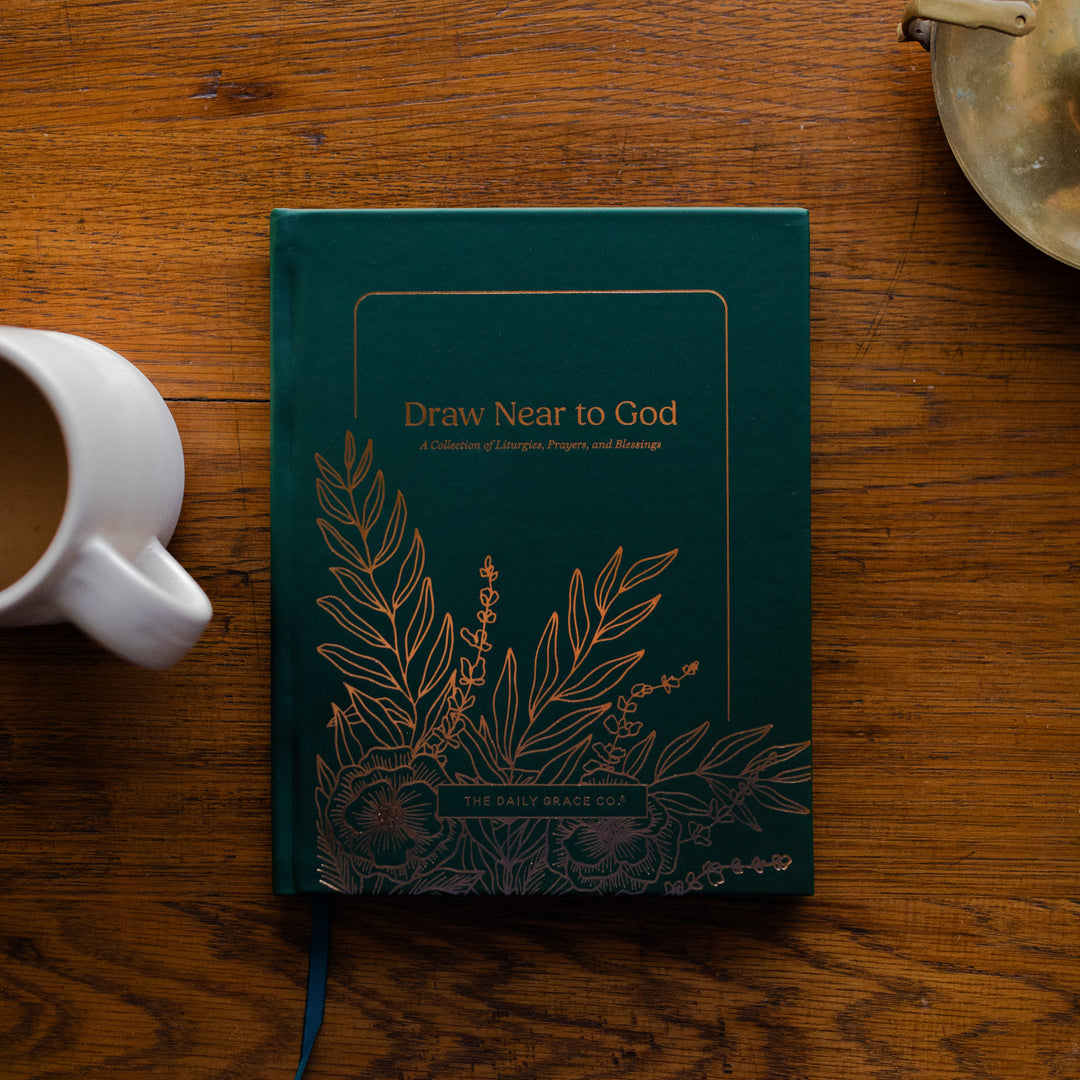“CJ, can you pray for our meal?”
I was thirteen when my pastor asked me to bless the dinner one evening at church camp. There were fifty-or-so people, and I was nervous to project my voice so all could hear me. I started sputtering prayer fragments. I was overthinking it—so much so that I forgot to bless the meal itself!
We put a lot of pressure on ourselves when we pray. Even when we are alone and only the Lord is listening, we might feel unsure of how to proceed. How do I address God? Do I only thank Him? Do I only ask Him for things? Can I be upset? Is my prayer wrong?
Now, I believe that simply praying to God is a surefire way to start. (The Lord wants to hear from you, after all.) But having some guidance can help. Thankfully, there is an entire book of the Bible composed of prayers that we can emulate when we aren’t quite sure how to pray. This is the book of Psalms! And we can use this ancient hymnbook of God’s people to structure our own prayers to Him.
What are the Psalms?
To begin, Psalms is a book of 150 prayers or songs put together over hundreds of years. Far from being a random assortment, the book of Psalms has a discernible structure. The early psalms consist of David’s struggles and successes (Psalms 3–72). Many of the middle psalms relate to Israel’s existential struggle with a fractured kingdom (Psalms 73–89) and exile (Psalms 90–106). Leading up to a few centuries before Jesus’s birth, the final psalms capture Israel’s hopes and prayers for God to return and the Messianic King to restore Israel (Psalms 107–150).
Put into modern terms, Psalms is the soundtrack to Israel’s life as described in the Old Testament. And as with any soundtrack, the full range of human emotions is represented: pain, joy, peace, suffering, elation, despair, hope, and everything in between.
Lament, Thanksgiving, and Hymns
The different emotions or attitudes we detect in the psalms are very important. Certain emotions or attitudes will occasion a certain genre of psalm—sort of like your prayers!
So, here are three different genres of psalms you can pray with; each is designed for a different situation. Pray along with them when you don’t quite have the words to speak.
-
Lament
Psalms of lament are for when life is difficult, unbearable even. In these situations, the psalmist cries out to God, asking Him to intervene.
Psalm 3 is a perfect example, written by David when he fled from Absalom (2 Samuel 15). Read it now and notice the flow.
LORD, how my foes increase!
There are many who attack me.
Many say about me,
“There is no help for him in God.” Selah
But you, LORD, are a shield around me,
my glory, and the one who lifts up my head.
I cry aloud to the LORD,
and he answers me from his holy mountain. Selah
I lie down and sleep;
I wake again because the LORD sustains me.
I will not be afraid of thousands of people
who have taken their stand against me on every side.
Rise up, LORD!
Save me, my God!
You strike all my enemies on the cheek;
you break the teeth of the wicked.
Salvation belongs to the LORD;
may your blessing be on your people. Selah
Leading with complaints and problems, laments allow us to express our anguish and sorrow. David wishes the Lord would strike down his foes and the thousands against him. David’s emotions are on full display. Though we might not have warriors pursuing us, foes come in all shapes and sizes. Our “foes” might be anxiety or medical bills that we wish the Lord would destroy. (A godly woman I know described her depression as her “foe” to mimic the language of Psalm 3.)
So, when you are battling a “foe,” try inserting it into the psalm. Name it and cry out to God with the psalmist.
But once you’ve named your foe, don’t stop there. Laments start with anguish and sorrow, but as verses 4–8 suggest, they often end with appeals to God for help.
So end your lament by acknowledging God’s power over your foe. The Lord is the victor over your anguish, and as verse 8 says, “Salvation belongs to the LORD.”
Pray a lament: name your foes, acknowledge that the Lord is your help.
(Some other lament psalms you might pray include: Psalms 4–7, 38–41.)
-
Thanksgiving
Psalms of thanksgiving are the opposite of laments; they are what you pray to God after He delivers you from your enemies.
Many of us have had these experiences
Unlock a 10% off coupon!
Psalm 30, also written by David, is a prime example. Its opening line explodes with praise: “I will exult you, LORD, because you have lifted me up and have not allowed my enemies to triumph over me.” Its final line is similar: “LORD my God, I will praise you forever.”
This psalm of thanksgiving reads like the opposite of David’s lament in Psalm 3. There, the enemies threatened David, but here, the enemies have been destroyed!
Perhaps you had been praying for community, or for a chance to share the gospel with a neighbor, or something else, and the Lord came through! When the Lord comes through, pray a prayer of thanksgiving. And just as with the laments, replace David’s language according to your own circumstances: “I will exalt you, LORD, because you have lifted me up and have not allowed _____ to triumph over me” (Psalm 30:1).
In those moments when the Lord provides, we can pray alongside David in Psalm 30, praising the Lord that He “turned…lament into dancing” (verse 11). He is your Victor, so give Him praise!
(Other psalms of thanksgiving include: Psalms 18, 34, 75, and 116.)
-
Hymn
Hymns are distinct from laments and psalms of thanksgiving. Hymns are like those bursts of reverence, awe, or astonishment that come across us throughout the day as we drive the kids to school, type away at work, or enjoy a walk with the family.
David’s Psalm 29 is a great example. In this psalm, David repeatedly praises the Lord for how thunder and lightning display His glory. David senses God’s voice and power over creation in the majestic bolts of lightning and cracks of thunder. He is in awe. God’s booming voice is “powerful” and “majestic” (verse 4). It “breaks the cedars” (verse 5) and “shakes the desert” (verse 8).
The beginning and end of the psalm show how David is moved to worship by what he experiences. Verse 2 calls readers to give the Lord “glory due his name,” and toward the end of the psalm, all worshipers in God’s “temple…cry, ‘Glory!’” (verse 9).
When we are awestruck by God’s majesty, pray with David! Don’t hold back. The world around you is teeming with God’s glory. Let those bursts of astonishment turn to bursts of praise. He is too glorious for us to remain silent!
(Other hymns include: Psalms 8, 67, 96, and 100.)
Sometimes we don’t know how to pray. We don’t have the words—or we aren’t confident in where to start. The psalms can offer guidance in those moments, helping us structure our own prayers as they are both sacred Scripture and the inspired prayers of ancient saints.
The three types of psalms we discussed today—laments, thanksgiving psalms, and hymns—are enough to get us started. Laments help us in our anguish. Psalms of thanksgiving help us thank God when He gives us victories. Hymns guide us in outbursts of praise.
So if you feel unsure of how or where to start praying, start by turning to the psalms.
Additional Resources for Prayer:
| Pray | Cultivating a Passionate Practice of Prayer Bible Study  Loading price… | The Lord's Prayer Bible Study  Loading price… | Thirty-One Days of Prayer Journal  Loading price… | Draw Near to God: A Collection of Liturgies, Prayers, and Blessings  Loading price… |










